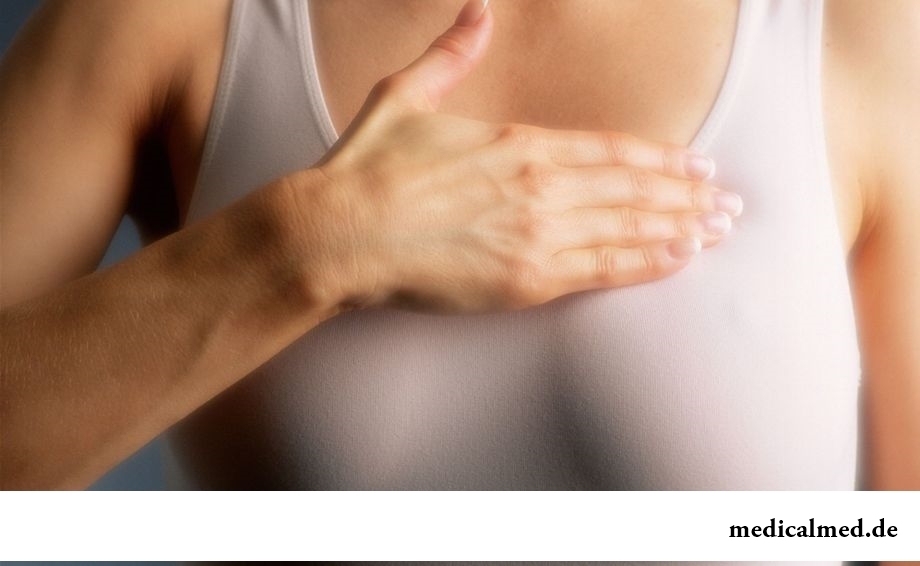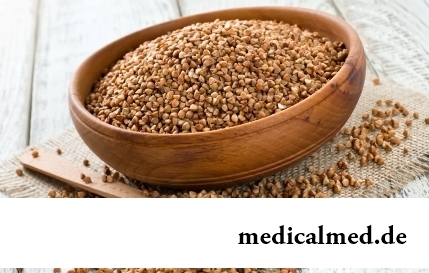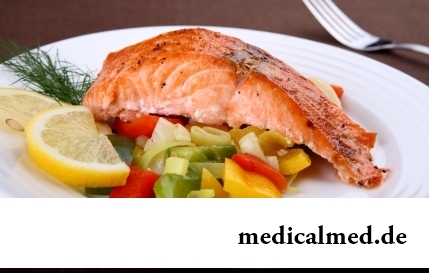





Nutritionist
The nutritionist – the doctor dealing with issues of a balanced diet including medical. As a rule, the nutritionist carries out reception in medical or sanatorium institutions.

The dietitian carries out selection of a diet, helps the patient to pick up the healthy nutrition, physiologically balanced healthy and convenient for life. Convenience is an important factor as only then there is an opportunity to adhere to the principles of the picked-up healthy food not a certain period, and throughout all life. Therefore councils of the nutritionist have to be selected taking into account a rhythm of life, habits, flavoring preferences of the patient. In addition, the diet which is picked up by the dietitian has to give feeling of saturation and keep health of the patient.
The competent nutritionist will always consider the state of health of the patient. According to nutritionists, even the small deviations in health of the patient revealed only by testing are a reason for modification of food.
But one knowledge still is not enough, they need to be put into practice. Competence of the nutritionist includes change of the relation of the patient to food. When, by councils of the nutritionist, the patient who is earlier thoughtlessly absorbing junk food begins to turn in a gourmet which at first estimates, chooses and only then eats, here then it is possible to say that healthy food became a norm of life of the patient. As a rule, similar process takes several months and is often connected with certain difficulties in work of the dietitian. It is possible to change habits only in that case when new it is much more interesting and more pleasant old, and brings positive takes. Therefore the nutritionist, according to reviews, has to be able to solve as well psychological problems, namely:
- How will learn to derive pleasure from life without the aid of food?
- Where to take desire and forces to change itself?
- What will the person receive as a result of changes?
Besides, the dietitian has to support patients constantly. When is with whom to discuss sore problems to whom to show the achieved results, it is much easier to change. People often in any undertakings lack competent support.
In what diseases the nutritionist is engaged?
- Disturbances of work of the alimentary system (heartburn, an eructation, discomfort and weight in a stomach, intestines swelling, bitterness in a mouth, frustration of a chair, etc.);
- Headaches, migraines;
- Deficit of weight;
- Joint pains, arterial hypertension;
- Skin rashes (seborrheal, acne, allergic), itch;
- Increase in level of cholesterol in blood;
- Allergic pharyngitises, conjunctivitis, rhinitises. Vasculomotor rhinitis;
- Increased fatigue, drowsiness, emotional instability, decrease in working capacity.
When it is necessary to descend on reception to the nutritionist?
- High content of sugar in blood (it is higher than 5,6 mmol/l on an empty stomach);
- Obesity (the waist volume men more than 102 centimeters, and at women have more than 88 centimeters);
- Low level in blood of lipoproteids of high density (women have lower than 1,3 mmol/l and men have 1 mmol/l);
- High content of triglycerides in blood (it is higher than 1,7 mmol/l);
- High arterial pressure (it is higher than 130/85 mm of a mercury column).
On reception the nutritionist can ask the patient to make the following analyses:
- "Biochemistry" and the "developed" blood, definition of thyritropic hormone, the general analysis of urine, and other analyses which will help to exclude "good reasons" of excessive weight;
- "The metabolic syndrome" at which against the background of excessive weight exchange of carbohydrates changes and raises pressure (the ABP higher than 130/85 mm of a mercury column, the content in blood of sugar is higher than 5,6 mmol/l).
- Allergological screening food Ig E panel.
Also on reception the nutritionist can conduct ultrasound examination of abdominal organs which will give it an idea of work of a bladder, digestive organs and a pancreas. This research plays a large role as, according to nutritionists, the vast majority of complications of the emergency diets is connected with the latent diseases of these bodies.
Councils of the nutritionist
- It is necessary to eat often, approximately each three hours, but in the small portions. However you should not go into extremes, namely, to have a bite constantly cookies and sandwiches;
- The last meal not has to be 18 hours are later;
- Food should be eaten slowly, carefully chewing it;
- During food it is useful to drink water. So, for example, for half an hour before meal it is possible to drink a glass of water, and to begin food with soup;
- It is better to use meat fast, prepared by cooking, roasting or on couple;
- It is worth using less products with a large number of calories and high content of fat;
- It is necessary to remember the "hidden" fats;
- Part of animal protein can be replaced on vegetable as they have lower caloric content;
- Never to be necessary to visit supermarkets, previously without having supported.
During sneezing our organism completely stops working. Even heart stops.

Long time antibiotics were considered as a panacea from all diseases and were appointed even at insignificant symptoms of an infection. Even now...
Section: Articles about health
The fatigue, sleep debt, disturbances of food, bad mood, vagaries of the weather – all these circumstances badly affect our appearance. Especially the person suffers: skin becomes flabby, loses healthy color, becomes covered by wrinkles, zones of hypostases and t appear...
Section: Articles about health
Run - one of the most available and effective ways to revitalize the organism. Knowing about its extraordinary advantage, each of us at least once tried to make jogs, but only the few made these occupations regular. In spite of the fact that in jogging (easy jogging), apparently, there is nothing difficult, the beginning runners often make mistakes which lead to complete cessation of trainings. Let's consider 10 useful tips for beginners who will allow them to make regular п...
Section: Articles about health
Aging — natural and inevitable process. Over time our skin loses elasticity, on it saggings, a face form теря are formed...
Section: Articles about health
It seems, quite recently you brought the baby from maternity hospital, but time flew by, and here it is already going to join the first in life children's collective. How to prepare the child for visit of a garden? What needs to teach him to facilitate process адап...
Section: Articles about health
The way of life of people promptly changes from year to year: if about ten years ago the personal computer was not in each family, then today already very few people do without this device. Certainly, and children master the computer at full speed: they not only play on it games, but also study, and write school works, and search for necessary information....
Section: Articles about health
Mushrooms - the surprising inhabitants of our planet having a set of wonderful qualities. Thanks to one of them, a mold mushroom of Penici...
Section: Articles about health
The phenomenon of the panic attack is known long ago, but the reasons of its emergence still are up to the end not found out. It is established that more than 30% of people at least once in life become the victims of very unpleasant phenomenon: without everyones on that the reasons they have a feeling of horror, with...
Section: Articles about health
Osteoporosis this general disease which main sign is decrease in density of a bone tissue. On distribution width it takes the fourth place among noninfectious diseases. The illness develops at mature age more often: in our country about a third of women and a quarter of men suffers from it 50 years are more senior....
Section: Articles about health
One of the useful properties presented to the person by the nature is ability to feel fear. This ability is called a signal...
Section: Articles about health
An eye of the person daily experiences considerable strain. The problem of preservation of sight is for many years directly connected with a question of supply of tissues of eye enough oxygen and nutrients. This task is carried out by small vessels – capillaries. For holes...
Section: Articles about health
Good appetite was always considered as a sign of good health. The correct operation of the mechanism which is responsible for the need for nutrients and receiving pleasure from process of its satisfaction demonstrates that the organism functions without special deviations. On the other hand, appetite of the person is not a constant. It depends on the culture of food, flavoring addictions imparted since the childhood which can change during life, weather, mood and many д more than once...
Section: Articles about health
The business lady, the become mother, it is necessary to solve an array of problems. But of them is main: how to combine the beloved child and work?...
Section: Slideshow
From the failure of work of immune system which is shown in the form of an allergy, statistically, more than 40% of the population of the globe suffer. In most cases pathological reactions cause the substances which are contained in food stuffs, hair of animals, medicines...
Section: Articles about health
Aspirin (acetylsalicylic acid) – one of those drugs which are known literally to all. It is available in each home first-aid kit, and many accept it at the first signs of an indisposition, often without having a fair idea of properties and therapeutic effect of drug. Meanwhile, impact of aspirin on a human body is very various, and is not always favorable. About it it is important to foreknow, in order to avoid emergence of problems with health....
Section: Articles about health
Antibiotics - - it is possible to call the chemical compounds suppressing growth of bacteria the break in the field of medicine which allowed to save persons...
Section: Articles about health
New year, wedding, birthday, office party – an occasion to drink at the Russian person will always be. How to reduce a negative impact of alcohol by an organism and to avoid a condition of strong intoxication? The most correct council – to refuse the use spirits напитк...
Section: Articles about health
What woman does not dream of a beautiful and thick hair? While physicians developed difficult schemes on hair transplant, in the industry of hairdresser's art a few years ago there was a sensation – methods of hair extension appeared. It would seem, dreams came true: though the procedure of building also does not belong to the category cheap, practically any woman can increase several times the volume of hair, change their length and color – generally, to become the real beauty queen....
Section: Articles about health
Water with a lemon - idle time in preparation drink which supporters of a healthy lifestyle already managed to appreciate. Upo...
Section: Articles about health
80% of women at least once to lives complained of discomfortable feelings to breasts, consolidations and nagrubaniye. These are mastopathy symptoms. The mastopathy is characterized by change of a ratio between ferruterous and connective tissue tissues of mammary glands. It can bring...
Section: Articles about health
Bees – really unique beings. Practically all products of their life activity are used by the person. Since the most ancient times medicinal properties of honey and other substances received in the course of beekeeping are known. The fact that all these products are recognized not only national, but also official medicine is especially significant. About influence and routes of administration of bee "drugs" the speech in this article will also go....
Section: Articles about health
All of us, unfortunately, should face flu nearly an every year. It would seem, so frequent disease has to be study...
Section: Articles about health
History of cultivation of a buckwheat contains more than five thousand years. Grain which is received from this plant is used for preparation of porridges, soups, baked puddings and puddings, do flour which is one of the main ingredients of the noodles popular in of it...
Section: Articles about health
Season of activity of viral infections in the heat. Everyone can get sick, but probability of this unpleasant event it is possible and it is necessary to minimize. There is a number of rules, following to which will help or to avoid absolutely infection with flu or a SARS, or to have an illness benign and without essential complications. About ways of prevention of seasonal infections the speech in this article will also go....
Section: Articles about health
Diseases of joints often begin imperceptibly for the person. The first stages of destruction of the cartilaginous tissue providing soft and свободн...
Section: Articles about health
Statistically, pathologies of a thyroid gland in the world more than 500 million people have. Failures in work of this body lead to heavy disbolism, development of heart diseases, vessels, a reproductive and nervous system. In hard cases excessive...
Section: Articles about health
All the known slogan "Protect Men!" arose not from scratch. In a sense, the nature created men much less adapted for vital disorders, than it seems at first sight. Statistically, men are ill more often, than women, have the majority of illnesses heavier and earlier die. The situation is aggravated with the fact that our fathers, husbands, brothers and sons are not always inclined to care for the health. Partly it happens because of unwillingness of t...
Section: Articles about health
